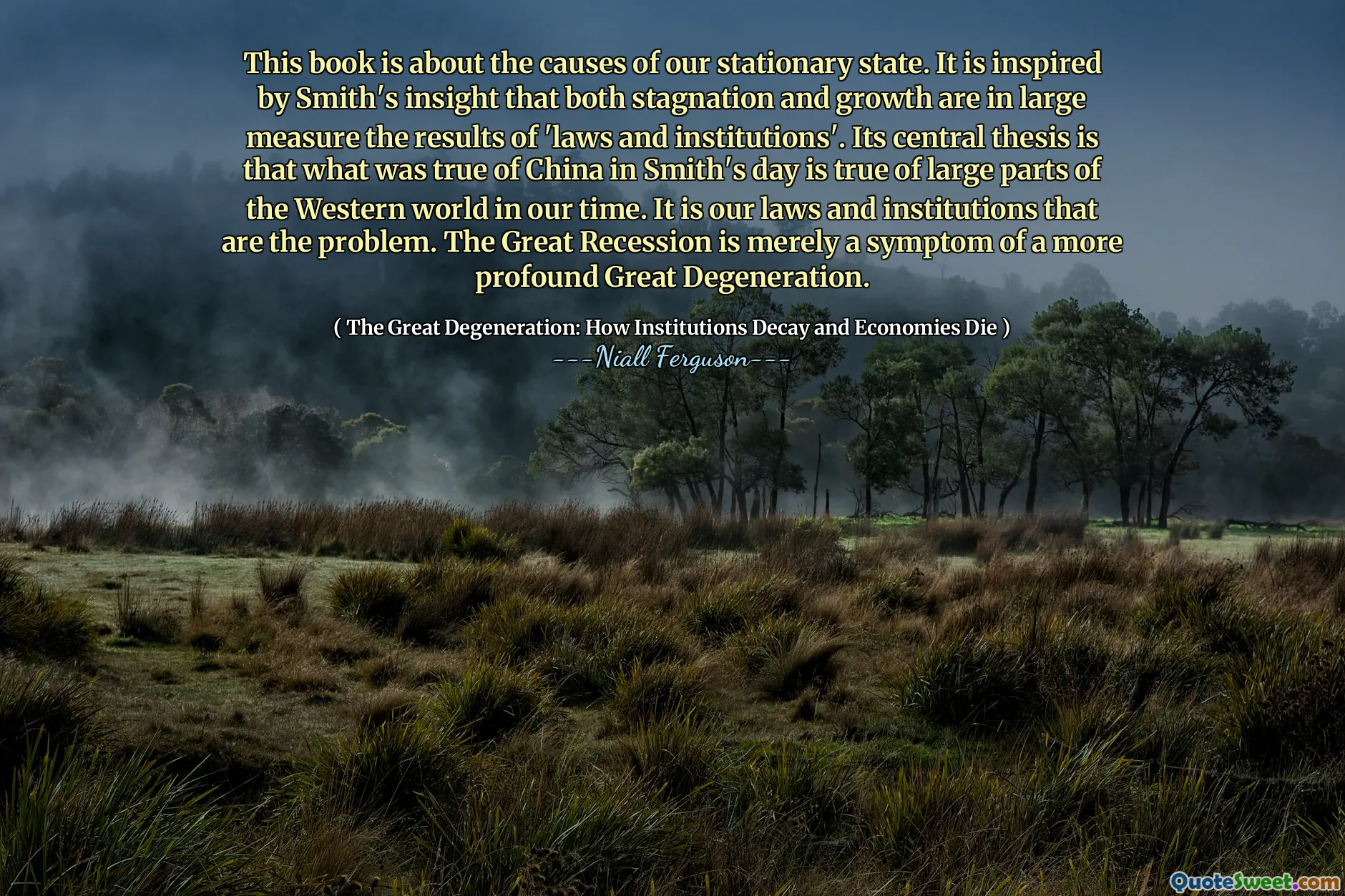
This book is about the causes of our stationary state. It is inspired by Smith's insight that both stagnation and growth are in large measure the results of 'laws and institutions'. Its central thesis is that what was true of China in Smith's day is true of large parts of the Western world in our time. It is our laws and institutions that are the problem. The Great Recession is merely a symptom of a more profound Great Degeneration.
This book explores the reasons behind societal stagnation, drawing from Adam Smith's observation that both growth and stagnation stem from the influence of laws and institutions. The author argues that just as this was evident in China in Smith's era, many parts of the modern Western world are similarly affected. The central idea is that our current laws and institutions are the root cause of our stagnation.
Niall Ferguson posits that the Great Recession is not an isolated event but a sign of a deeper issue he refers to as the Great Degeneration. This implies that the decline in economic vitality is largely due to the decay of the institutions that underpin society, indicating a need for critical reflection and reform.











